Bridging the Gap Between Academic Research and Integrated Practice at the 2025 Venice Biennale
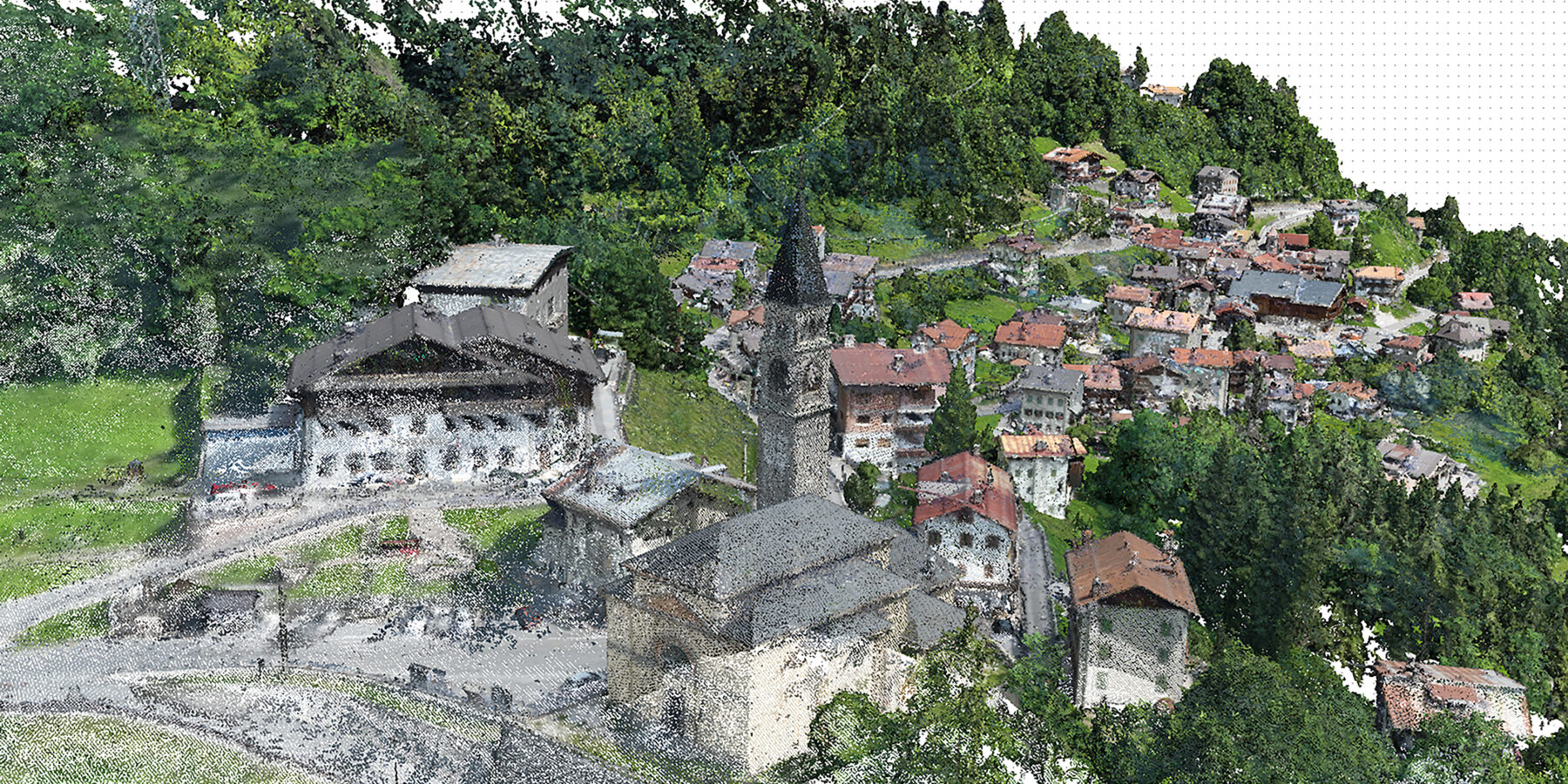
 Sasaki
Sasaki

Curated by architect Carlo Ratti and organized by La Biennale di Venezia, Intelligens. Natural. Artificial. Collective. explores the utilization of different means of “intelligence” to rethink the built environment. Among the dynamic projects showcased at the 19th International Architecture Exhibition was BeLieving in the Mountains, an interdisciplinary research project presented by Mary Anne Ocampo, Urban Design Principal at Sasaki and Associate Professor of the Practice of Urban Design and Planning at MIT and Cale Wagner, Associate Urban Designer at Sasaki and a MIT research assistant during the time of study.
Developed in collaboration with the Massachusetts Institute of Technology, Università Iuav di Venezia, Comune di Cibiana di Cadore, and Studio RO, BeLieving in the Mountains investigates the critical intersection of climate change, depopulation, and cultural heritage in the Dolomite municipality of Cibiana di Cadore.
Cibiana di Cadore is a small mountain municipality of 300 inhabitants nestled 1000 meters above sea level in the Italian Dolomites. Known for the distinctive murals decorating its historic buildings, this village between Belluno and Cortina faces mounting pressures from climate change and depopulation that threaten its survival, economy, and cultural heritage.
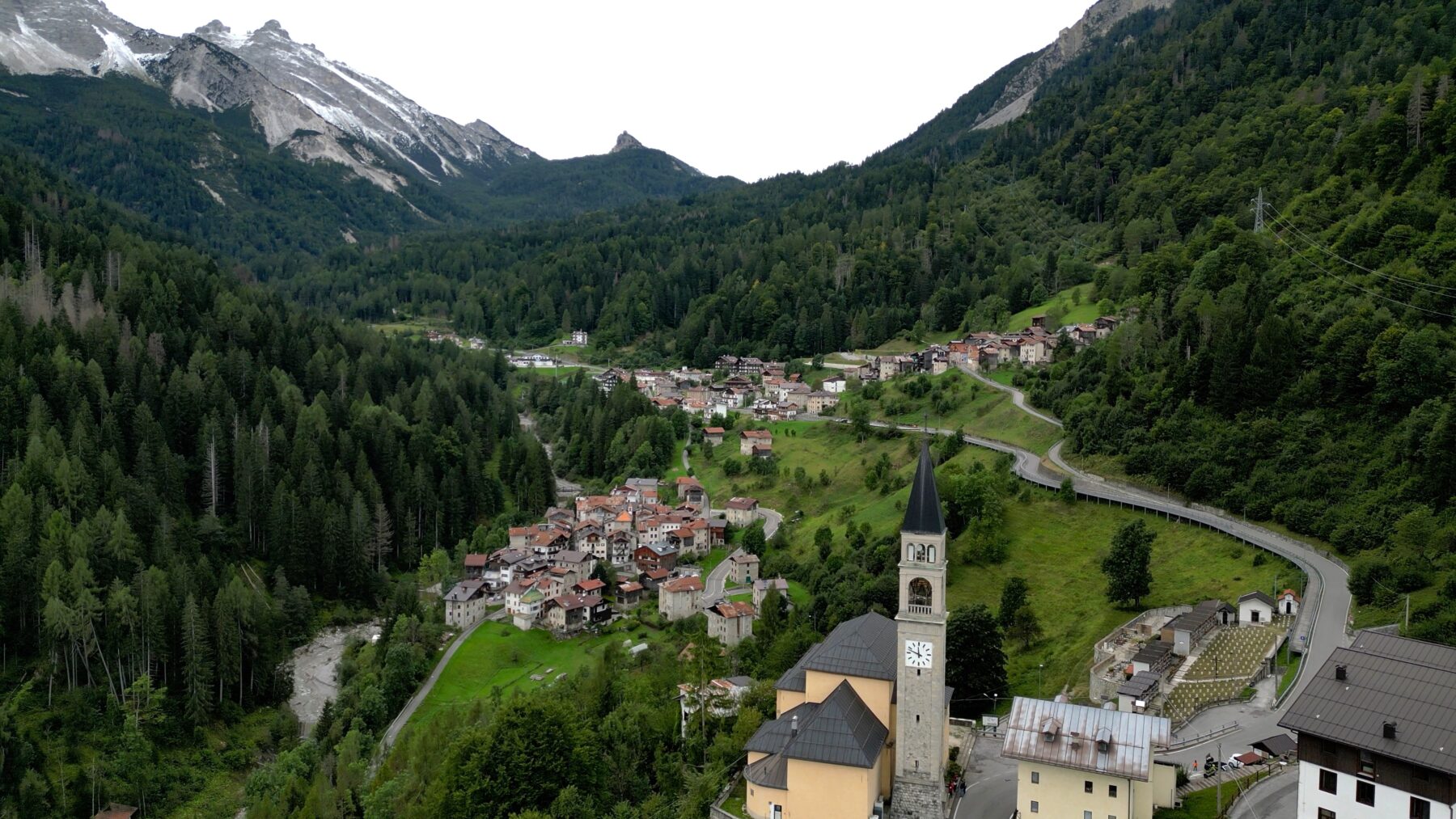
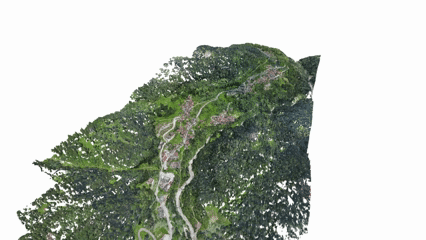
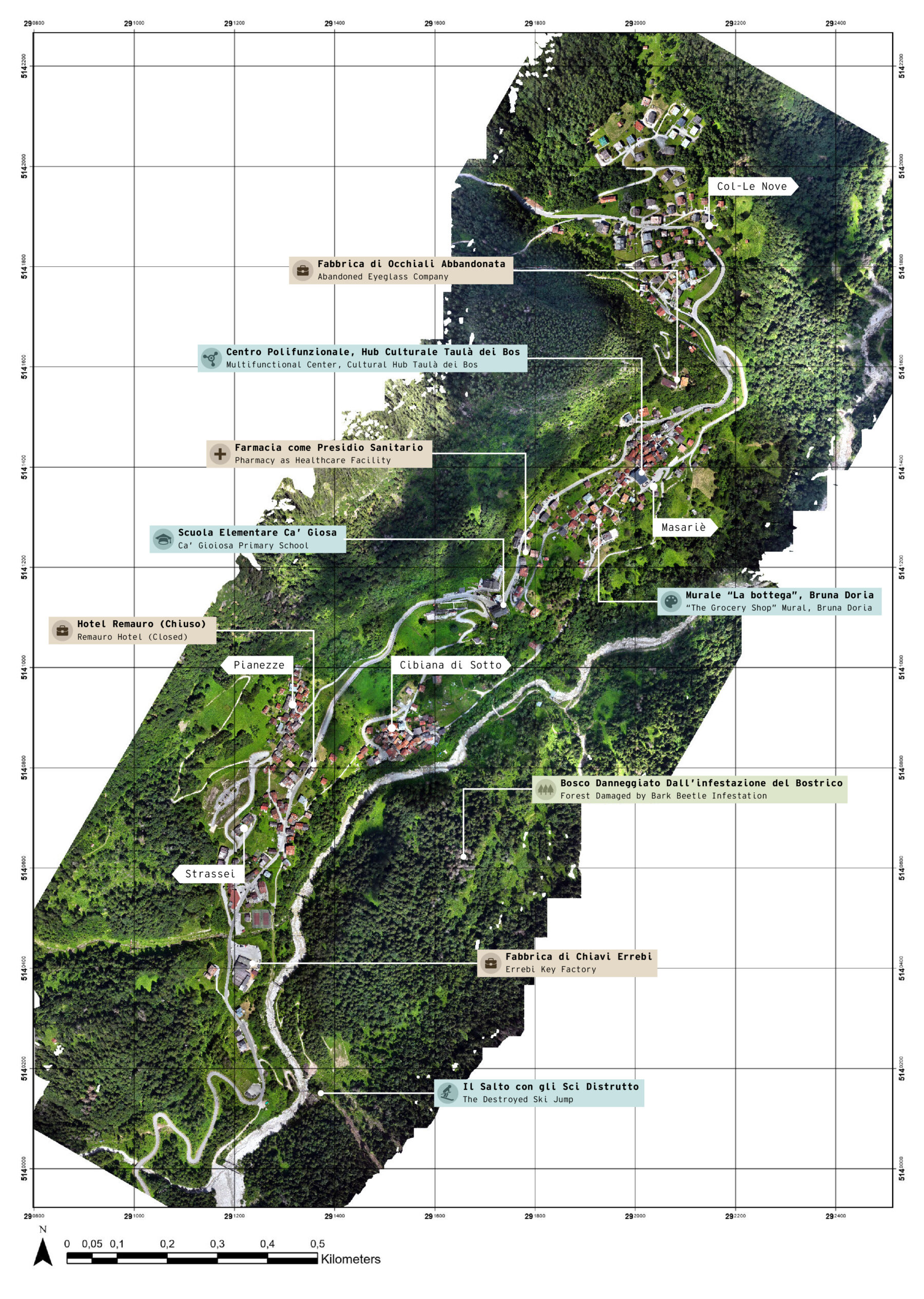
"Our research approaches design as a collective act–one that values diverse expertise, lived experience, and cultural knowledge as essential forms of design intelligence. By amplifying local stories and knowledge, we strengthen the capacity of communities like Cibiana to shape their own futures, and in turn, the insights gained through academic inquiry expand the tools and strategies we bring into professional practice."
Mary Anne Ocampo, Principal, Urban Designer, Sasaki
BeLieving in the Mountains is anchored by a 20-minute documentary film produced by Rebecca Ocampo that captures both the beauty and fragility of mountain life. Through aerial footage of dramatic Dolomite peaks and intimate conversations with village residents and stakeholders, the film reveals a community grappling with environmental and economic upheaval. Residents share firsthand accounts of the devastating 2018 Vaia storm that reshaped entire forests, shifting weather patterns that disrupt traditional agricultural cycles, and the economic realities of tourism-dependent livelihoods. Their stories illuminate the difficult choice between preserving cultural heritage and pursuing economic opportunities in the broader region.
Beyond storytelling, the research employed advanced photogrammetric modeling to create detailed 3D maps of the village and surrounding landscape. A digital geo-questionnaire allowed residents to identify culturally significant sites while documenting environmental risks, creating a layered portrait of both community memory and climate vulnerability. This methodology demonstrates how technological tools can amplify local knowledge, an approach that aligns well with Sasaki’s commitment to an innovation-powered and community-centered design process across project types and scales.
“Working between academia and practice allows us to test ideas at a depth that directly benefits both. The advanced mapping technologies and community storytelling process we developed in Cibiana serve as practical frameworks that can now inform how we approach climate resilience, community engagement, and cultural preservation across our work at Sasaki."
Cale Wagner, Associate, Urban Designer, Sasaki
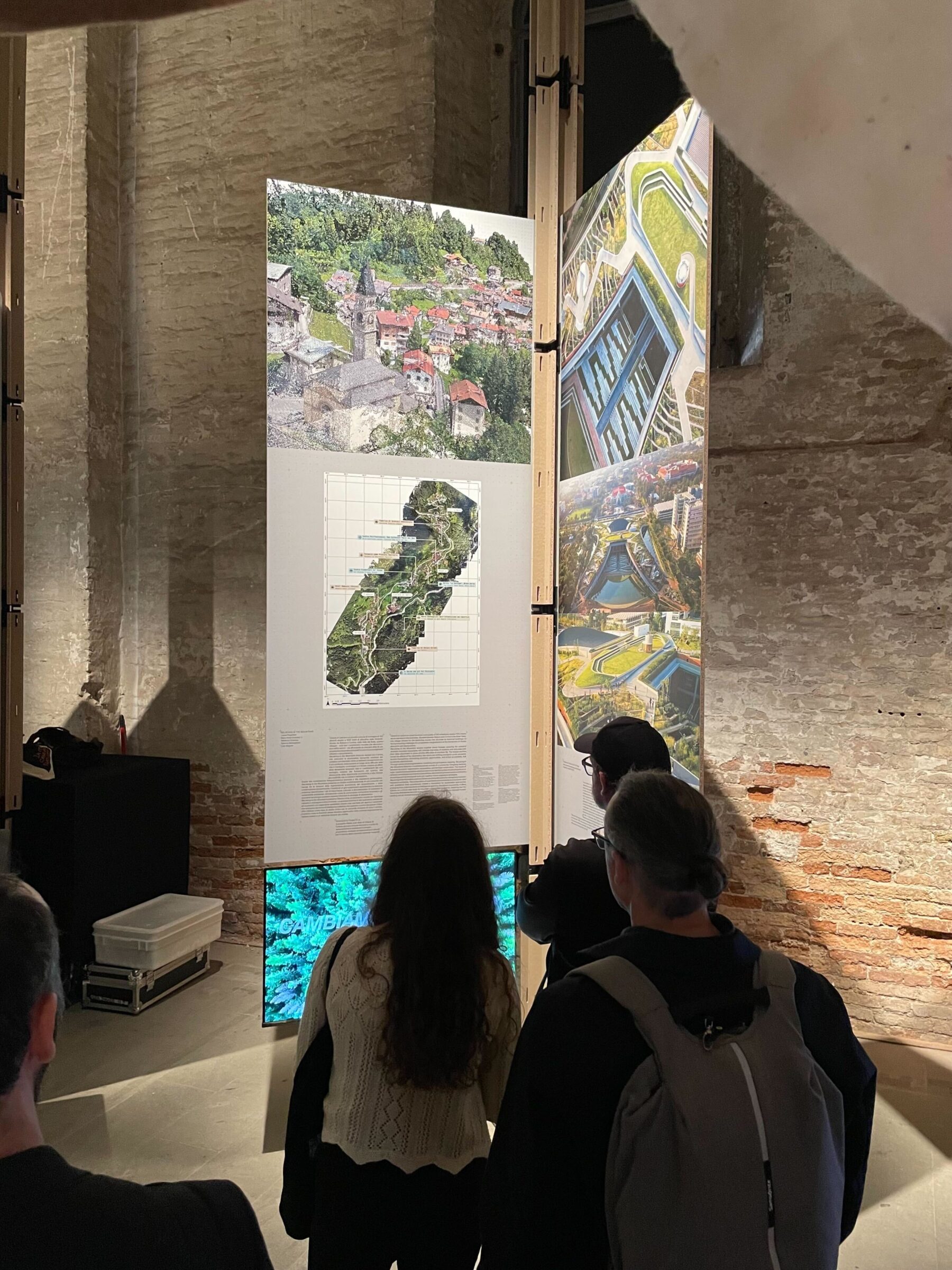
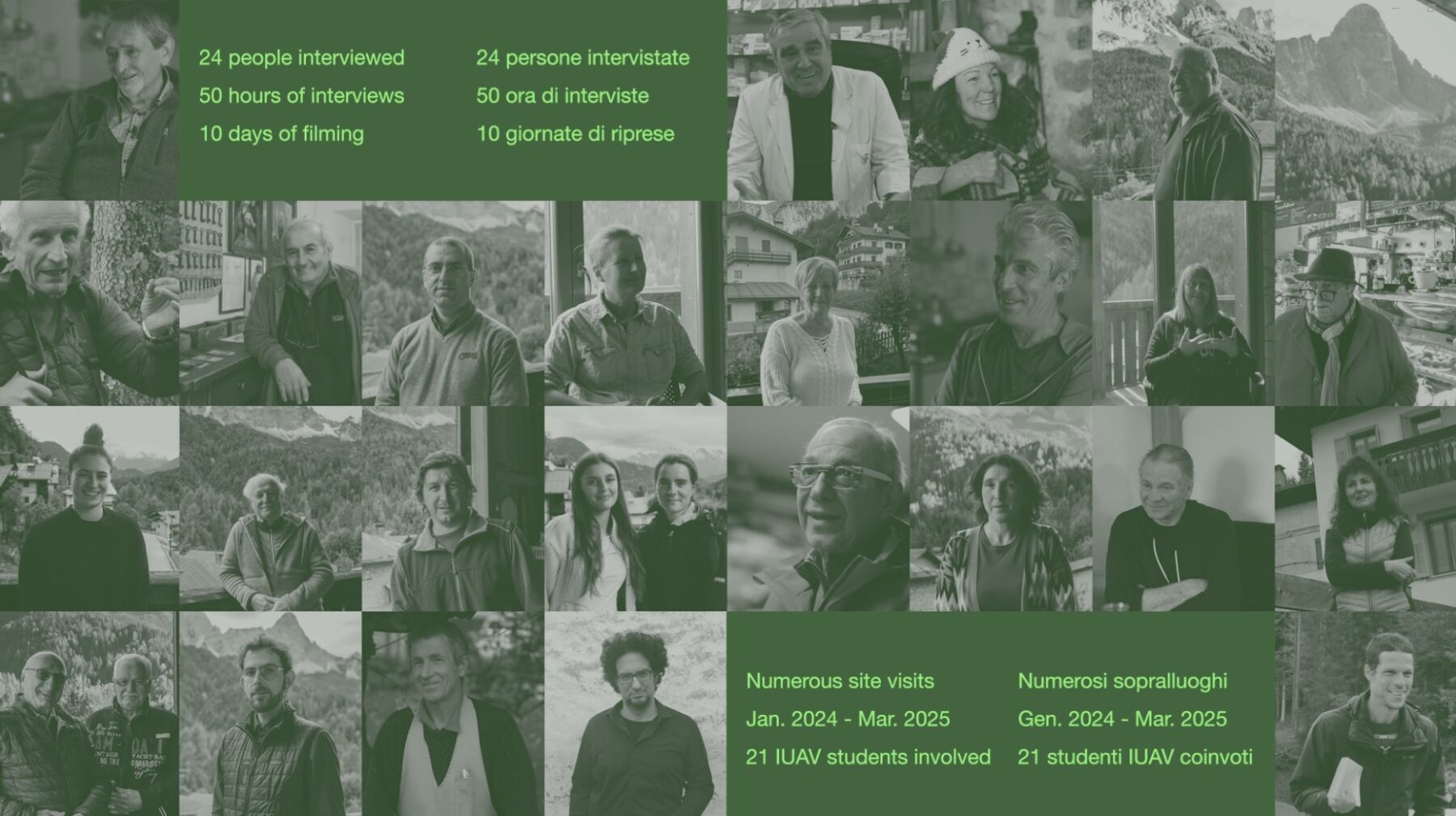
The research positions Cibiana as a living laboratory for mountain community adaptation strategies. As climate change intensifies pressures on mountainous regions globally, the film and accompanying research offer insights that extend far beyond the Dolomites to vulnerable communities worldwide. The work also reveals how landscapes themselves become active participants in the ongoing negotiation between human settlement and environmental change, a perspective that continues to inform Sasaki’s approach to climate-responsive design and community resilience planning.
Intelligens. Natural. Artificial. Collective. is open to the public from Saturday, May 10th to Sunday, November 23rd, 2025 at the Venice Arsenale.